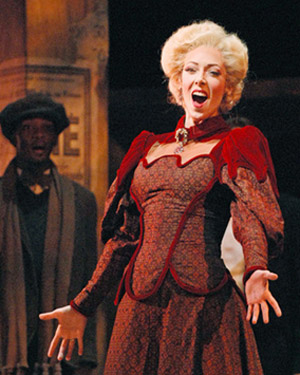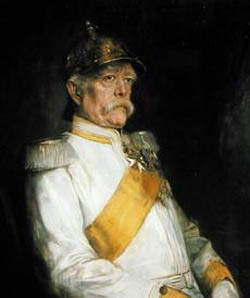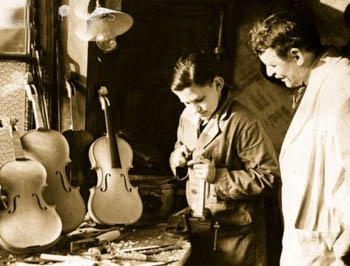 |
Organic Society
Monarchy, Aristocracy & Democracy - IV
Catholic Rebuttal to Rousseau’s
Sovereignty of the People
Plinio Corrêa de Oliveira
How does the Church respond to Rousseau’s theory of the sovereignty of the people as explained in the last article?
First, she affirms that this is an atheistic doctrine, in which God no longer has any role as the foundation for authority, of either the State or the law.
Second, the Church makes an important distinction with regard to the truth that all men are equal. Certainly all men have a body and an immortal soul, are children of Adam and Eve, and have the same human nature. This makes us fundamentally equal to one another. For this reason, every man has certain rights simply because he is a man. These rights include the right to life, to honor, to constitute a family, to work in order to maintain himself and his family with dignity. These rights come to us from the fact that we are men.
Although we are substantially equal as men, however, we are different accidentally. One man is more intelligent than another. One has more capacity, produces more useful things. Another has a stronger will than others. Another has more charm - there are people who are naturally boring, while others are quite interesting.

God creates some with better voices than others |
These inequalities result in different situations. Imagine two sisters, daughters of the same parents. To make our example more striking, imagine twin sisters who are almost identical physically. One has a magnificent voice and becomes a famous singer; she gives concerts and is applauded everywhere. The other has a dissonant voice and is utterly without charm. But she is an honest person and capable of checking the hats and overcoats of the persons who attend the concerts given by her sister.
Are they equal? Obviously they are not. While one has a great artistic talent she developed, the other can only keep the coats and hats in order and treat the concert-goers amiably to receive good tips. Thus, even though both are equal in everything that is essential, the accomplished singer has the right to a better salary that the coat checker.
Someone might say: “I have a pity for the simpler sister!” This reaction is somewhat childish and not very Catholic, because that sister is simple because God made her that way. If she is faithful to her mission, she can be in a much higher place in Heaven than her famous sister. Naturally speaking, God wanted to give the one sister more than the other, although He gave sufficient to each for their sanctification. God has the right to do this, and each of us should accept the place he has been given.
I know that this principle clashes with modern egalitarianism, but this is the Catholic doctrine.
So, accidental inequalities also make some men more suitable to hold public offices than others.

Prussian chancellor Otto von Bismarck was from a Junker family |
In Pomerania, a part of Prussia in northeast Germany, there are families of landed nobility called Junkers who had held those lands since the Middle Ages. It happened that those families always generated extraordinary military officers. A great part of the fame of the Prussian army is due to the presence of these Junkers. The German army during Hitler’s time also benefited enormously from the presence of those officers. It is a historic fact: those families give birth to excellent military officers.
Now, suppose a man that would say: “I am a German and I protest against this order of things. We should do away with the influence of these families over our army and have our military commanders elected by the people.” You probably would doubt the efficiency of this kind of army…
I could also give the example of families of Swiss artisans who for centuries perfected their skill for making excellent watches. They used their gifts for their own benefit, of course, but also for the entire society.
If God created this mysterious phenomenon of hereditary gifts, by which a specific capacity is transmitted through the generations, it serves the common good to take advantage of it. Thus, it is normal that men naturally capable of higher things should be given higher things to do.
These differences are riches of nature given by God to men that we should conserve and use, not eliminate. When Rousseau affirmed that all men are equal without distinguishing what is essential and what is accidental, he erred.
Inequality is the law of perfection. Egalitarianism is the law of satanic pride, which does not accept the will of God and wants to raze everything superior.
Third, to these two doctrinal points we add some historic arguments. There is absolutely no proof that men ever lived in isolation, apart from society, as Rousseau imagined. We have historical records for a long time before the time of Our Lord and there is no evidence that men lived isolated and apart from one another. This simply did not happen.

From one generation to another the Voight family at Manchester, above, improves the quality of its violins |
Even if we were to admit the theory of evolution – which we do not – in the so-called prehistoric times when supposedly men were living in caves, they were already presented as living in groups. So Rousseau’s presupposition that there was a time when man was not a social creature is fictitious; it has no basis in reality.
Fourth, even if our ancient ancestors would have made a social contract to obey a certain form of government at their time, let us suppose 2,000 years before Christ in some part of Mesopotamia, I cannot understand why, 4,000 years later, we would be obliged to follow that form of government in Brazil – a country that did not even exist then. The mentalities, conditions, needs, and all the historic circumstances are completely different.
Once again, Rousseau’s fiction that we should obey his hypothetical social contract is completely outside of reality. Such a government would be an artificial regime imposed by people from a very distant past who would have no relation to our present times. Far from expressing the freedom of the actual people who compose a society, it establishes the despotism of the dead – a necrocracy, one might say - that has no link with our life. This is the weak foundation of the social contract and the essence of the theory of the sovereignty of the people.
In conclusion, the Catholic notion of authority and government affirms that those who exercise power in one of the three legitimate forms of government represent God. Therefore, we should obey them unless they command something that is against the Law of God.

Posted November 22, 2010

  | | Prof. Plinio |
Organic Society was a theme dear to the late Prof. Plinio Corrêa de Oliveira. He addressed this topic on countless occasions during his life - at times in lectures for the formation of his disciples, at times in meetings with friends who gathered to study the social aspects and history of Christendom, at times just in passing.
Atila S. Guimarães selected excerpts of these lectures and conversations from the transcripts of tapes and his own personal notes. He translated and adapted them into articles for the TIA website. In these texts fidelity to the original ideas and words is kept as much as possible.

Related Topics of Interest
 Part I: Definitions, Examples, Nuances Part I: Definitions, Examples, Nuances
 Part II: Theoretical and Practical Positions of the Church Part II: Theoretical and Practical Positions of the Church
 Part III: Does Authority Represent God or the Sovereign People? Part III: Does Authority Represent God or the Sovereign People?
 Leadership Is Not Established by a Social Contract Leadership Is Not Established by a Social Contract
 Belloc: 'As a Catholic, I Am Strongly Attached to Rousseau’ Belloc: 'As a Catholic, I Am Strongly Attached to Rousseau’
 Inequalities Are the Base and Bond of Society Inequalities Are the Base and Bond of Society
 Groups of Friends and Guilds Groups of Friends and Guilds

Related Works of Interest
|
|
Organic Society | Social-Political | Home | Books | CDs | Search | Contact Us | Donate

© 2002-
Tradition in Action, Inc. All Rights Reserved
|
 |
|